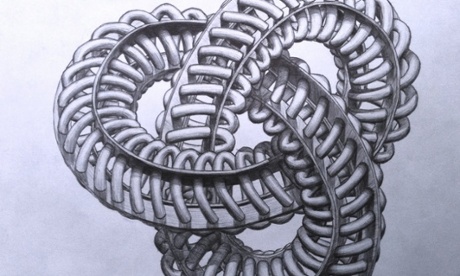Dark matter, mental health, and the cakes of math - blogs roundup
Posts on our network this week included a look at Medical Innovation Bill, scaremongering, neuroscience, and why we need more information on chickenpox vaccines

Welcome to Signal Boost, our weekly roundup of blog posts over the past week. We also feature our bloggers' favourite pieces of writing from around the internet – enjoy!
Looking for Dark Matter requires open science, open data, and productive scientific collaborations. Jon Butterworth highlights a recent example from CoGeNT collaboration - other areas of research, take heed.

What would you do if you saw a bird that everyone thought was extinct? Grrlscientist reviews a Birder's Guide to Everything.
The controversial proposals for the Medical Innovation Bill have now gone through public consultation. Richard P Grant discusses why it might be important.
Tesseracts, hyperbolic planes, fractals and pythagorean cakes. Alex Bellos takes a look at some mathemagical pictures from the world of numbers.
The controversial proposals for the Medical Innovation Bill have now gone through public consultation. Richard P Grant discusses why it might be important.
Tesseracts, hyperbolic planes, fractals and pythagorean cakes. Alex Bellos takes a look at some mathemagical pictures from the world of numbers.

It's mental health awareness week this week. Jason and Daniel Freeman point out that mental illness is a common occurrence even in the happiest country in the world. It's not something that we should be embarrassed to talk about.

If you don't read this scaremongering article from Dean Burnett, your life won't depend on it. An excellent takedown of nonsense media scare stories.
Confession: the main point of my latest @guardiansciblogwas sneaking in the most cerebral dirty joke ever (I reckon) http://t.co/hDKW4tTg9K— Dean Burnett (@garwboy) May 14, 2014
A chickenpox vaccine is available, but Andrew Wakefield's legacy still casts a long shadow. Jenny Rohn argues we need more information about it, so that parents can make informed decisions.
If we're going to have conversations about whether neuroscience can inform pedagogy, it needs to be based in good evidence. Pete Etchells looks at a recent conference motion.
It's the 500th anniversary of Dürer's famed Melencolia engraving.Karl Galle reflects on its design and legacy.

Best articles from around the web
Don't use the f word - not that one, the other one. It's incredibly insensitive to some.
Malcolm Campbell takes a look at the evolution of the eye in this beautifully written piece.
Sharing good teaching practice through blogging. @teachingofsci looks at why students are struggling with questions about heat transfer.
Blackness ever blackening: my lifetime of depression. By Jenny Diski.
Is home birth really as safe as hospital birth?
AstraZeneca and Pfizer: Why R&D matters.
Sit back, relax, and check out this amazing livestream view of the Earthfrom the International Space Station
Thanks to Jon Butterworth, Grrlscientist, Jenny Rohn and Stephen Curry for suggestions for this week's links.

No comments:
Post a Comment